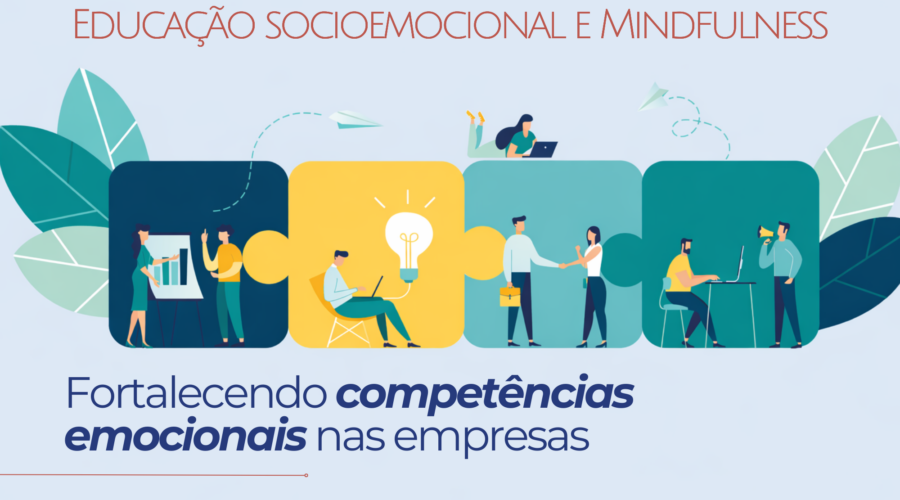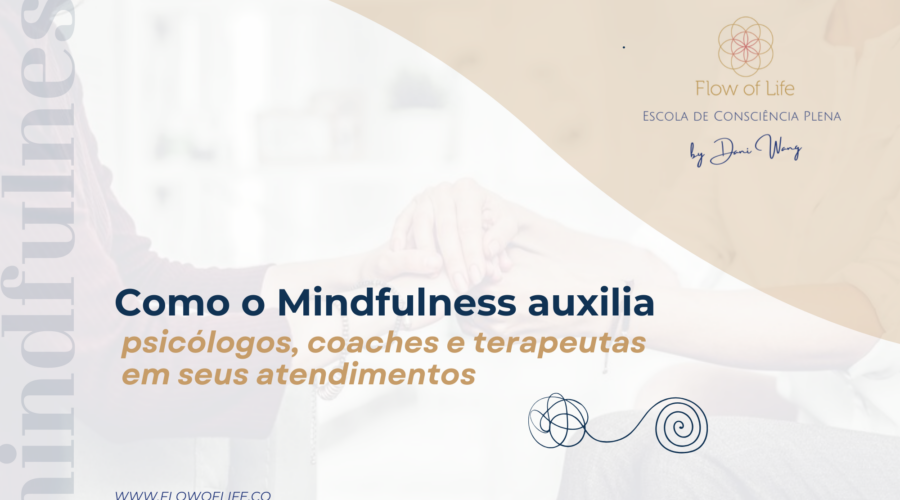The role of Mindfulness in managing emotions in conflict situations
The concept of Mindfulness has been increasingly studied in the field of psychology as an effective practice for emotional intelligence, especially for managing emotions in conflict situations. The ability to keep one's attention focused on the present moment, without judgment, can provide a more balanced and rational response to stressful situations. In contexts of dispute or tension, this practice has shown significant benefits in regulating emotions, reducing impulsive reactions and increasing empathy. This text seeks to explore the role of Mindfulness in managing emotions in conflict situations, based on scientific evidence.
What are conflicts?
First of all, it's important to understand what characterizes a conflict situation. Conflicts can be interpersonal or internal, involving different points of view, interests or emotions. During these moments, emotional responses are often intense, such as anger, frustration or fear. Mindfulness can help observe these emotions without the need to react automatically, providing a pause so that the individual can decide how to respond more constructively.
Studies and research prove
Scientific research shows that regular practice of the technique can change the way the brain processes emotions. Studies carried out by Davidson and Kabat-Zinn (2003) revealed that practicing Mindfulness can increase the activation of the prefrontal cortex, the region responsible for executive control and emotional regulation, while decreasing the activity of the amygdala, which is the center for processing intense emotions such as fear and anger. This brain balance allows for more effective management of emotions during moments of conflict, favoring reflection before impulsive action.
In addition, this practice promotes greater awareness of emotions, facilitating the early identification of negative feelings that may arise during an argument or disagreement. This is relevant, as the identification and acceptance of emotions are crucial stages for emotional regulation. According to a study conducted by Creswell et al. (2012), individuals who practiced Mindfulness demonstrated a greater ability to deal with difficult emotions and made more considered decisions in challenging contexts. Instead of being consumed by emotional impulses, the practitioner can allow themselves a pause to reflect on their response, which results in more peaceful and productive interactions.
Another important aspect is the impact on empathy, a crucial skill in conflict management. Mindfulness practices have been associated with an increase in empathy, allowing the individual to better understand the other person's perspectives and needs, which can be fundamental for resolving disputes. According to a study by Hölzel et al. (2011), the practice increases neural connectivity in areas of the brain related to empathy and perspective-taking, facilitating mutual understanding during conflict situations.
However, it is worth pointing out that although the benefits of Mindfulness are evident in many studies, its effectiveness can vary depending on how the practice is carried out. Constant practice and adequate training are essential if the effects of Mindfulness are to be fully utilized. And of course its application must be integrated with other conflict resolution strategies, such as non-violent communication, dialog and negotiation.
Before we get down to the practical part, a concluding summary. As you can read, Mindfulness plays a fundamental role in managing emotions in conflict situations, offering tools for emotional regulation, increasing empathy and promoting more balanced and reflective responses. Scientific evidence points to its positive effects in reducing impulsive reactions and improving communication between the parties in conflict. Therefore, cultivating Mindfulness can be a valuable strategy for individuals seeking to deal more healthily and constructively with the emotional challenges that arise during disputes or moments of tension.
10 tips on how to practice
To transform the way we deal with emotions in conflict situations, adopting habits and practices related to Mindfulness can be a very effective way forward. Below, I've highlighted some tips, suggestions and habits that can help integrate the practice of Mindfulness and improve emotional management in tense moments:
1) Daily practice of Mindfulness
One of the most effective habits for transforming emotional management in conflict situations is daily practice. Start with short sessions of 5 to 10 minutes, here on our Flow of Life website you can find free guided audios to get you started today. During these sessions, focus on your breathing, body sensations or even the emotions that arise, allowing yourself to observe without judgment or expectation of an outcome. Over time, this practice helps you develop a greater awareness of your emotions, allowing you to identify automatic reactions and regulate them before acting impulsively.
2) Conscious breathing in times of conflict
When you're in the middle of a conflict, a simple and effective technique is conscious breathing. When you realize that you are starting to feel emotionally overwhelmed, pause and focus on your breathing. Breathe deeply, counting to four as you inhale, holding your breath for four seconds and exhaling slowly for eight seconds. This simple exercise can decrease nervous system activation and help restore calm, allowing you to respond in a more rational and balanced way.
3) Practice self-acceptance
In conflict situations, it is common to feel angry or frustrated. However, accepting these emotions, rather than trying to repress or deny them, can be an important step towards emotional regulation. Mindfulness encourages self-acceptance, which involves allowing yourself to feel these emotions without judging yourself or feeling guilty. By practicing this, you can prevent these emotions from dominating your actions, enabling a more balanced and reflective response.
4) Development of empathy
Mindfulness can also be a powerful tool for increasing empathy during a conflict. By practicing attentive listening, seeking to understand the other person's perspective without judgment, you can reduce tension and facilitate conflict resolution. This requires being present in the moment and really focusing on what the other person is expressing, without interrupting or planning a response as they speak.
5) Break techniques and "mini-vacations"
When the tension in a conflict builds up, it's very easy to fall into a pattern of automatic, emotional responses. A useful technique is the deliberate pause, or what I like to call a "mini-vacation": when you feel you're about to react impulsively, give yourself a few seconds or even minutes to breathe. Try to stop what you're doing, if possible leave your surroundings, and for a few moments feel the physical reactions in your body, reflect on what has happened and choose a more elaborate response. This "mini-vacation" can be combined with a Mindfulness practice, which helps to keep the mind more centered and less dominated by emotions.
6) Mindfulness during everyday life
In addition to formal meditation, informal Mindfulness can also be integrated into your day-to-day life to help prevent tension from building up. Practices such as mindful eating, mindful walking or even doing household chores with total presence are simple ways to cultivate mindfulness outside of the formal meditation environment. This helps to strengthen the mind so that, when faced with a conflict, you will find it easier to apply the same presence and emotional balance.
7) Use of affirmations or mantras
In moments of conflict, it can be useful to resort to affirmations or mantras to help you refocus your mind. Phrases such as "I am able to deal with this calmly and clearly" or "I choose to respond with empathy" can be repeated mentally throughout the day or an argument, reinforcing the intention to maintain emotional control and seek a peaceful solution.
8) Post-conflict reflection exercises
After a conflict, take some time to reflect on the situation. Ask yourself what you felt, what the possible triggers were, how you reacted and what you could have done differently. This reflective process, carried out in a non-self-critical way, can help you learn from situations and become more aware of your 'pain body', which facilitates a more balanced response next time.
9) Training in non-violent communication
Although not exclusively a Mindfulness technique, training in non-violent communication (NVC) can be a valuable complement. This approach focuses on expressing needs and feelings clearly, without attacking or blaming the other person, which can significantly decrease tension levels. When combined with Mindfulness practice, NVC can help reduce misunderstandings and increase cooperation.
10) Setting healthy limits
Finally, to prevent emotions from spiraling out of control, it's important to set clear boundaries during a conflict. If you notice that the tension level is rising, it can be useful to interrupt the conversation by saying something like: "I need a moment to reflect before continuing." This boundary allows you to regain your composure before taking any impulsive action.
Integrating Mindfulness into emotional management during conflicts involves a combination of daily practices, breathing techniques, empathy and reflection. Over time, these habits can transform the way we deal with adversity, making us more balanced, aware and empathetic.
Change doesn't happen overnight, but with consistency and patience, Mindfulness can become a powerful tool in creating more constructive and harmonious interactions. To integrate all these concepts into your life in a simple, easy and natural way, join our ComUnidade Flow of Life and receive daily tips!




